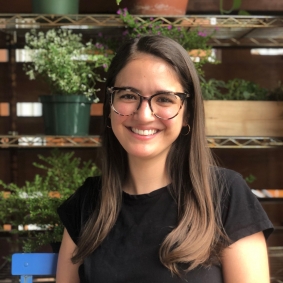Knauss legislative fellowships in Congress help build careers — and they're fun and educational. See our video and fact sheet for details.
The Maryland Sea Grant Bookstore will be closed for the winter holidays from Monday, December 15th to Friday, January 2nd and will not be taking orders during that time.
Aliya Mejias






